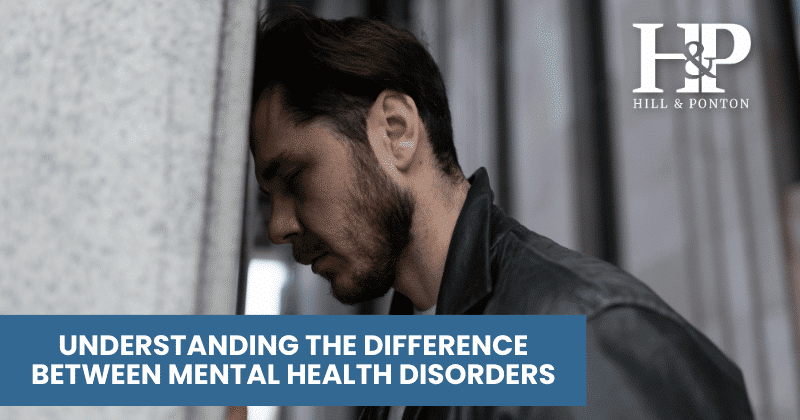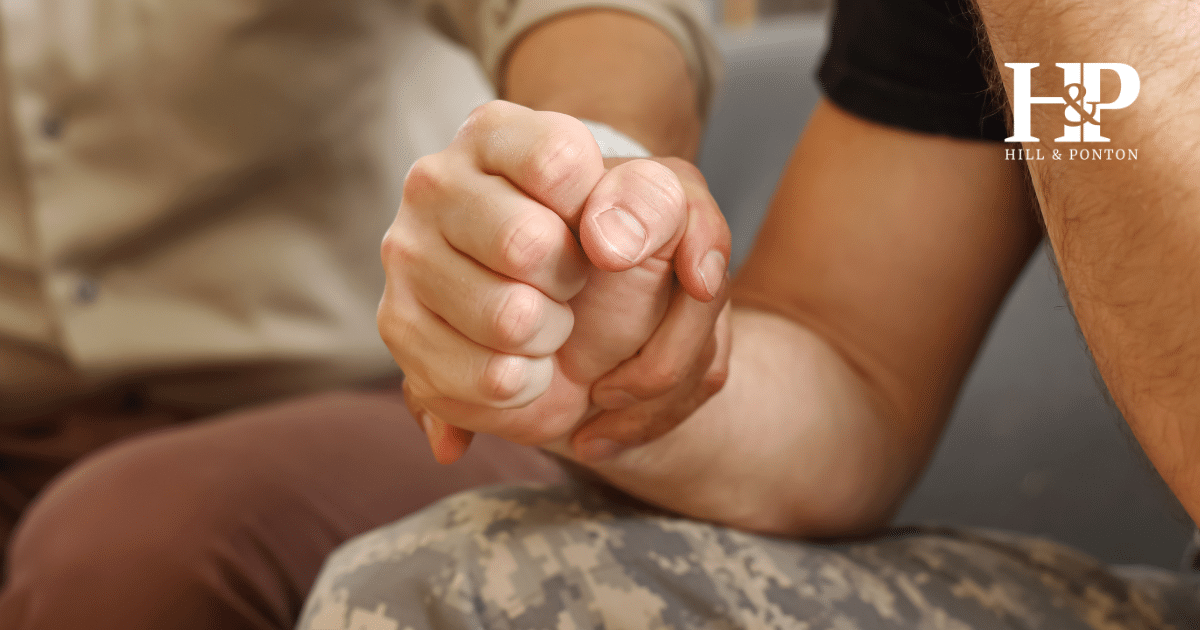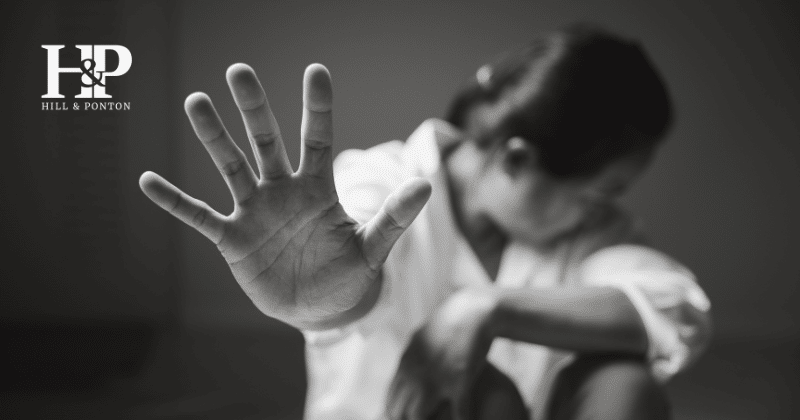Many Veterans suffer from mental health disorders due to the events they have witnessed or experienced while serving their country.
Many people automatically assume that if a person experiences a traumatic event and has a mental health condition because of that event, they must have PTSD.
Many veterans specifically are surprised when they are not diagnosed with PTSD but are diagnosed with a different mental health condition instead.
There has come to be a certain acceptance surrounding the diagnosis of PTSD; that it is an acceptable mental health diagnosis for a veteran to have.
Often times, other diagnosed mental illness can be just as valid and debilitating, and many times arise from the same events. So what is the difference between conditions?
Can you be diagnosed with PTSD and Anxiety together?
While yes that is a possibility since a veteran with a history of anxiety before service could have been exposed to a traumatic experience in active duty, we still have to consider several factors.
A common issue with differentiating between mental health conditions is that many of them have very similar symptoms. That makes it so challenging to determine, especially in one session, which diagnosis a veteran may have.
Add the fact that most of us do not want to go into a room and talk to a stranger about our most traumatic life events, and then the diagnosis can get even more challenging to make.
This is why we see veterans diagnosed with one condition, then later be diagnosed with a different one, or an additional one, or two.
There are also theories that some chronic trauma disorders such as PTSD cause a person to create coping skills that mimic other disorders such as Borderline Personality disorder or Bipolar disorder.
If someone has been “coping” with PTSD for several years, or even decades, often times they have created coping mechanisms that hide their symptoms so well they are misdiagnosed with other disorders they may not actually have originally had but developed as a protective measure.
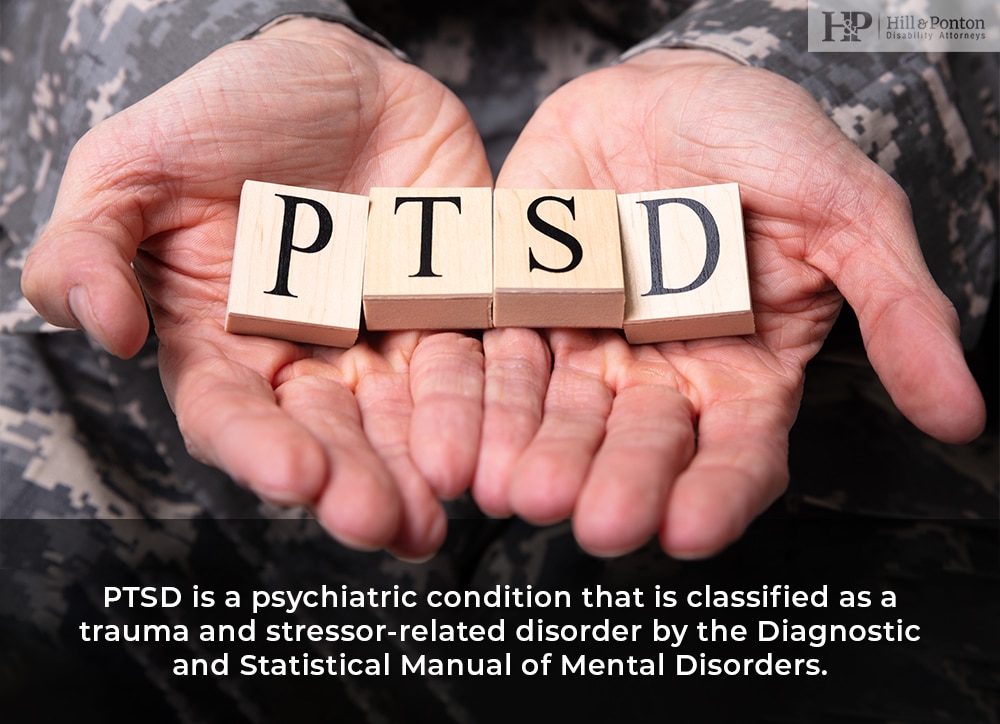
What is PTSD (Post Traumatic Stress Disorder)?
PTSD is always associated with the experiencing, witnessing, or learning of a traumatic event that causes death or great bodily harm, or has the potential to cause death or great bodily harm, to ourselves or someone we care about.
We often associate events such as combat, sexual assault, kidnapping, car accidents, natural disasters, major surgeries, acts of violence, and chronic abuse with PTSD.
PTSD must meet certain criteria when being diagnosed.
The first is exposure to a traumatic event where the Veteran experienced, witnessed, or was confronted with an event that involved actual or threatened death or serious injury or a threat to the physical integrity of self or others; and the response was intense fear, helplessness, or horror.
If you’d like more details on VA Disability benefits for PTSD, check out our PTSD guide where we cover the elements of diagnosis, stressors, and how to link them for a VA Disability claim.
However, PTSD is not the only mental health condition that veterans experience and many symptoms of PTSD overlap with other conditions.
How is Anxiety different than PTSD?
When the average person hears anxiety, we start thinking pre-existing issues like Generalized Anxiety Disorder (GAD) among others.
Unlike PTSD, traumatic events don’t necessarily have to happen for a person to experience anxiety symptoms.
The difference between PTSD and anxiety can be tricky to pinpoint, especially when soldiers with history of mental health issues like anxiety are then exposed to extremely traumatic experiences in their military service.
Their symptoms may be re-aggravated or made worse.
Because every person is different and reacts differently to situations based on their coping skills, morals, values, and experiences in life; reactions to those events will be different as well.
Where one person may not have any lasting mental health condition to an event, another may develop PTSD.
We do not know what causes one person to develop certain conditions and others to not, but we continue to try to understand and treat them.
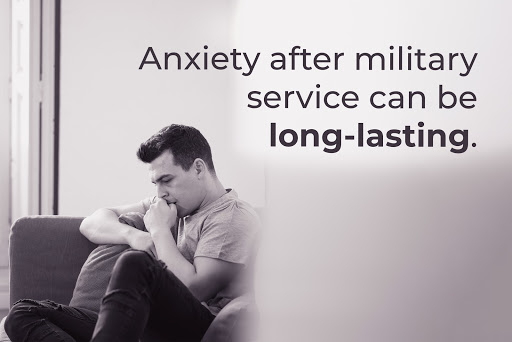
Top Five Common Anxiety Disorders Confused with PTSD
- Generalized Anxiety Disorder (GAD)
- Acute Stress Disorder
- Social Anxiety Disorder
- Panic Disorder
- Obsessive-Compulsive Disorder (OCD)
Top Nine Common symptoms of Anxiety and PTSD
- Restlessness or being on edge
- Being easily fatigued, having low energy
- Difficulty concentrating
- Irritability
- Excessive worry
- Difficulty falling or staying asleep
- Sudden and re-experiencing attacks of intense fear (Flashbacks)
- Feelings of panic or panic attacks
- Fear or avoidance of places where panic attacks have occurred in the past
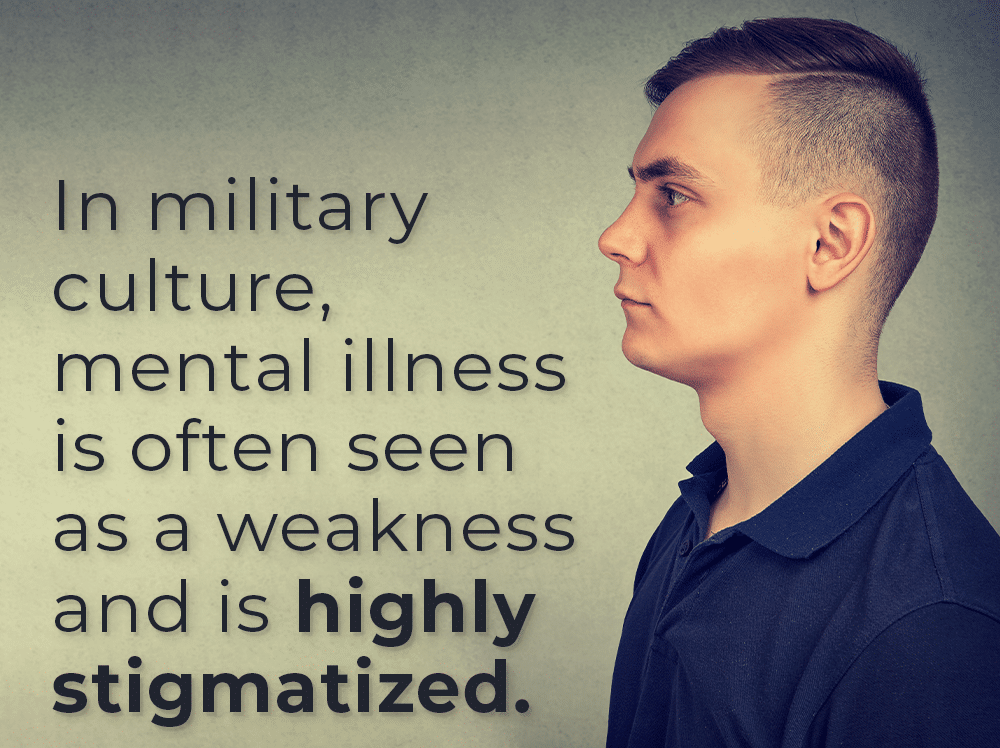
How is depression different from PTSD?
Depressive disorders are also similar to PTSD in the symptomology and often in etiology. For our blog on PTSD and depression click here.
Depression is not just being moody or sad. Depression is a serious illness where the depressive state can last months or even years and only treatment like psychiatry and psychotherapy can help.
A person cannot just “snap out of it.” Depressive disorders can be caused by the same traumatic events that cause PTSD, as well as difficult life circumstance, medical conditions, grief, and stress.
Differentiating between depression and PTSD can be challenging but it can also be a bit more straightforward than trying to do so for anxiety and PTSD.
This is because many of the symptoms PTSD and Anxiety share are not typically seen with depression such as vivid flashbacks and hyperawareness.
Let’s check out the most common depressive disorders and symptoms below.
Top Five Common Depressive disorders
- Major Depressive Disorder;
- Psychotic Depression;
- Seasonal Depressive Disorder;
- Post-Partum Depression; and
- Bipolar Disorder
Top Ten Common symptoms of both Depression and PTSD
- Auditory and visual hallucinations;
- Anxiety;
- Negative thoughts; Feelings of guilt;
- Loss of interest in previously pleasurable activities;
- Decreased energy, fatigue;
- Difficulty concentrating;
- Memory problems, difficulty making decision;
- Suicidal or homicidal ideations; and
- Irritability.
- Illicit substance use /substance abuse
Just because a veteran may have a diagnosis of anxiety or depression does not mean that their service was any less traumatic than a veteran who was diagnosed with PTSD, it only means that their reaction to the trauma was different.
Veterans are still eligible for compensation regardless of the name of the mental health condition they suffer from as a result of their service.
The Top 10 Mental Health VA Rating Tips for Veterans
As a veteran with a mental health disorder, navigating the process of applying for VA disability benefits can be complex and challenging.
However, it’s crucial to understand that mental health disorders, such as PTSD, depression, and anxiety, are real and valid conditions that may qualify for VA disability benefits.
To help you through the process, we’ve compiled a list of 10 essential tips specifically tailored for veterans with mental health disorders.
From understanding the importance of mental health to providing compelling evidence for your claim, these tips will assist you in navigating the VA disability claims process and increase your chances of receiving the benefits you deserve.
Here’s The Top 10 Mental Health VA Rating Tips we have for Veterans:
- Understand the Importance of Mental Health: Recognize that mental health disorders, such as post-traumatic stress disorder (PTSD) and depression, are real and valid conditions that can be eligible for VA disability benefits. Seek proper diagnosis and treatment from qualified mental health professionals.
- Keep Detailed Records: Keep detailed records of your mental health condition, including symptoms, triggers, and limitations. These records will help you provide accurate and compelling evidence to support your claim.
- Connect Your Mental Health to Your Service: Make sure to establish a clear connection between your mental health condition and your military service. Provide specific details about the events or incidents that may have caused or aggravated your mental health disorder during your service.
- Describe the Impact on Your Daily Life: Clearly articulate how your mental health condition affects your daily life, including your ability to work, perform daily activities, and maintain relationships. Be honest and detailed in describing the impact of your mental health disorder on your overall well-being.
- Seek Buddy Statements: Obtain buddy statements from fellow service members, friends, or family members who can provide firsthand accounts of how your mental health condition has affected you. These statements can serve as compelling evidence to support your claim.
- Attend All Mental Health Exams: Be sure to attend all mental health examinations scheduled by the VA. These exams are an essential part of the claims process and can provide valuable medical evidence to support your claim.
- Provide Complete and Accurate Information: When completing your application and attending exams, provide complete and accurate information about your mental health condition. Avoid downplaying or omitting symptoms, as this could negatively impact your claim.
- Seek Help from a Qualified VSO or Attorney: Consider seeking assistance from a qualified Veterans Service Organization (VSO) or an accredited attorney who specializes in VA disability claims for mental health disorders. These experts can provide guidance and advocacy throughout the claims process.
- Be Patient and Persistent: The VA disability claims process for mental health disorders can be complex and lengthy. Be patient and persistent, and don’t give up if your claim is denied initially. Take advantage of the appeals process and provide additional evidence to support your claim.
- Take Care of Your Mental Health: Lastly, prioritize self-care and seek treatment for your mental health condition. Taking care of your mental health is not only essential for your overall well-being but can also strengthen your claim for VA disability benefits by demonstrating ongoing treatment and management of your condition.
Have Questions About the Claims Process or Appealing a Decision?
The attorneys at Hill & Ponton are here to support you in your claim for disability benefits. If you are intending to appeal a denied claim, you can contact us for an evaluation.
